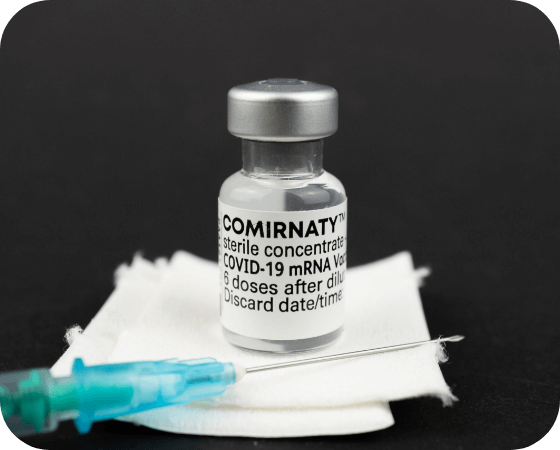White House Announces New Biodefense Plan
On Tuesday, President Joe Biden unveiled a new National Defense Strategy that incorporates lessons learned from the COVID-19 pandemic to help prepare for future public health emergencies. The strategy takes a whole-of-government approach to preventing pandemics, enhancing the response to pandemics, and improving laboratory safety. It also outlines several goals, including developing vaccines within 100 days and manufacturing enough doses for the US population within 130 days. The administration’s ability to achieve its goals will require Congress to provide billions of dollars in funding, which may prove unlikely in the near term given Congress’s unwillingness to provide additional COVID-19 and monkeypox funding despite the administration’s call for more resources.
FDA, CDC Approve Novavax COVID-19 Booster
Earlier this week, both the Food and Drug Administration (FDA) and the Centers for Disease Control and Prevention (CDC) signed-off on Novavax’s COVID-19 booster for US adults aged 18 years or older who are at least six months past a primary COVID-19 vaccine series. According to the FDA, individuals who received their initial two-dose regimen from Pfizer, Moderna, and Novavax are all eligible for the Novavax booster. Novavax’s vaccine is the only COVID-19 vaccine option available in the US that relies on traditional protein-based vaccine technology, which may help people get booster who cannot or prefer not to receive mRNA boosters (Pfizer and Moderna). Novavax is also developing its own bivalent booster that targets both the original interaction of COVID-19 and key Omicron subvariants (Pfizer and Moderna also market bivalent boosters).
CDC Panel OKs COVID-19 Vaccine for Childhood Vaccine Schedule
The CDC Advisory Committee on Immunization Practices (ACIP) voted unanimously on Wednesday to add the COVID-19 vaccine to the recommended vaccine schedule for children. The ACIP’s decision does not mandate the vaccine; instead, the decision serves as a guideline for states to incorporate into their own vaccination requirements. The decision notably adds the COVID-19 vaccine to the Vaccines for Children Program, which provides free vaccines to kids under age 19 whose families cannot afford them. A CDC official announced the agency will start awarding contracts to health care providers to give the free vaccine doses to eligible children.
FDA, DOJ Seek Court Injunctions on E-Cigarette Makers
On Tuesday, the Department of Justice (DOJ) and the FDA filed permanent injunctions in federal courts against six electronic cigarette manufacturers, marking the first time the FDA used injunction proceedings to enforce premarket requirements for new tobacco products. The FDA said in a press release that it filed the court injunctions because the six companies ignored several warning letters from the FDA for failing to submit the necessary premarket applications for their tobacco product. Since January 2021, the FDA has sent out nearly 300 warning letters to companies that failed to submit premarket applications, and most companies that received letters complied and removed their products from the market.
Deadline for Decision on New Smithsonian Museums Nears
The Smithsonian Board of Regents will meet on October 24 to consider the locations for the future Smithsonian American Women’s History Museum and the National Museum of the American Latino. Outgoing Rep. Carolyn Maloney (D-NY), who sits on the advisory board for the women’s museum is advocating for a location on the South Monument site directly across from the National Museum of African American History and Culture. Meanwhile, Rep. Tony Cárdenas (D-CA), who sits on the Board of Trustees for the Latino history museum, is pushing for a location across the street from the Holocaust Memorial Museum that is currently home to a rugby field. The Board of Regents is required to make a final decision by the end of December.
ICYMI: RIP Rusty the Red Panda
Rusty, a red panda who made national news in 2013 when he escaped from the National Zoo, died Tuesday at the Pueblo Museum in Colorado. Rusty’s escaped from the zoo nine years ago due to heavy rains causing his tree branches to lower enough to enable his getaway. He was found in DC’s Adams Morgan neighborhood, and shortly after his return to the National Zoo, was sent to the Smithsonian Conservation Biology Institute in Virginia where he fathered three cubs. While red pandas have similar markings to giant pandas, the species is more closely related to racoons.





